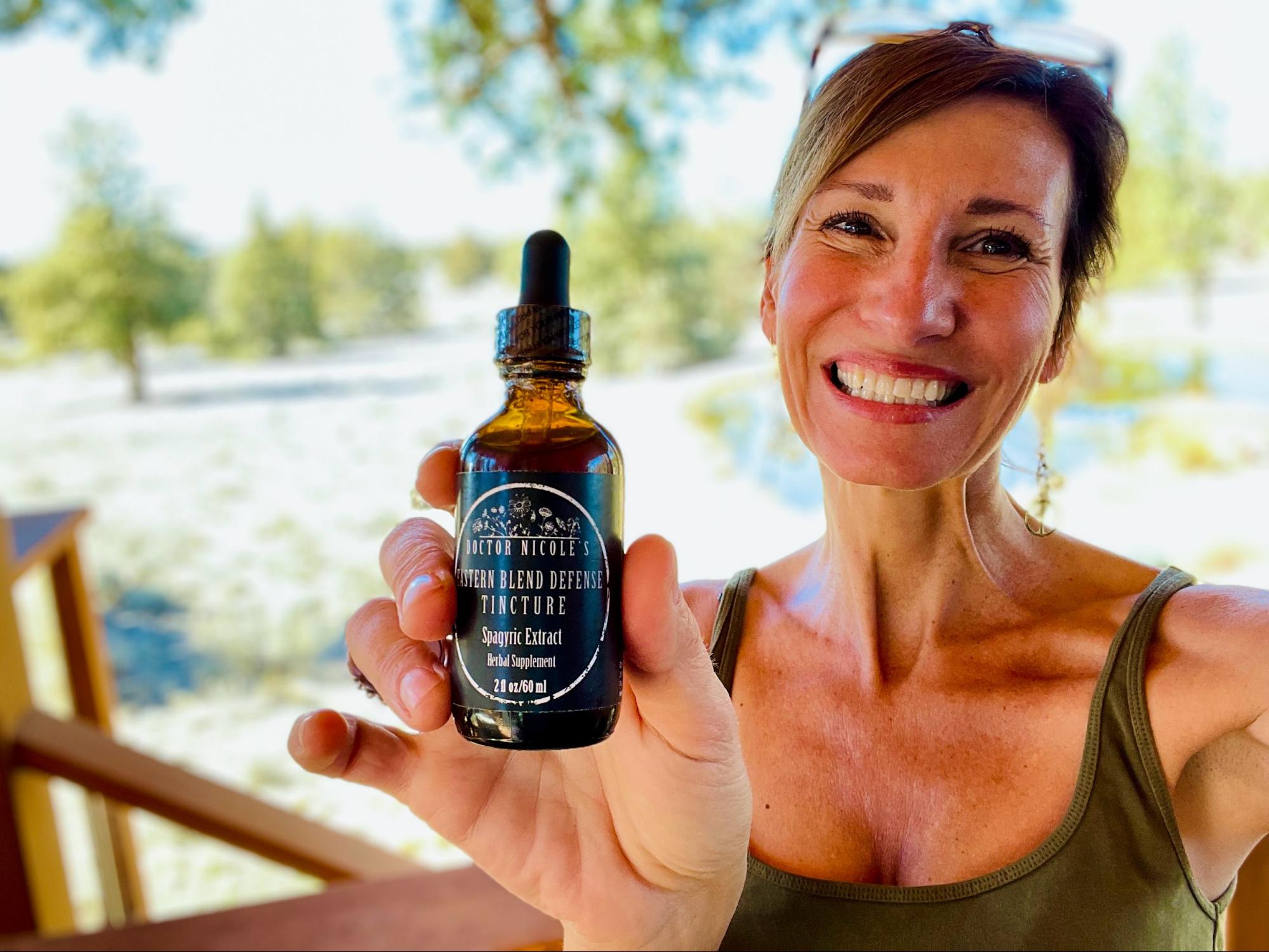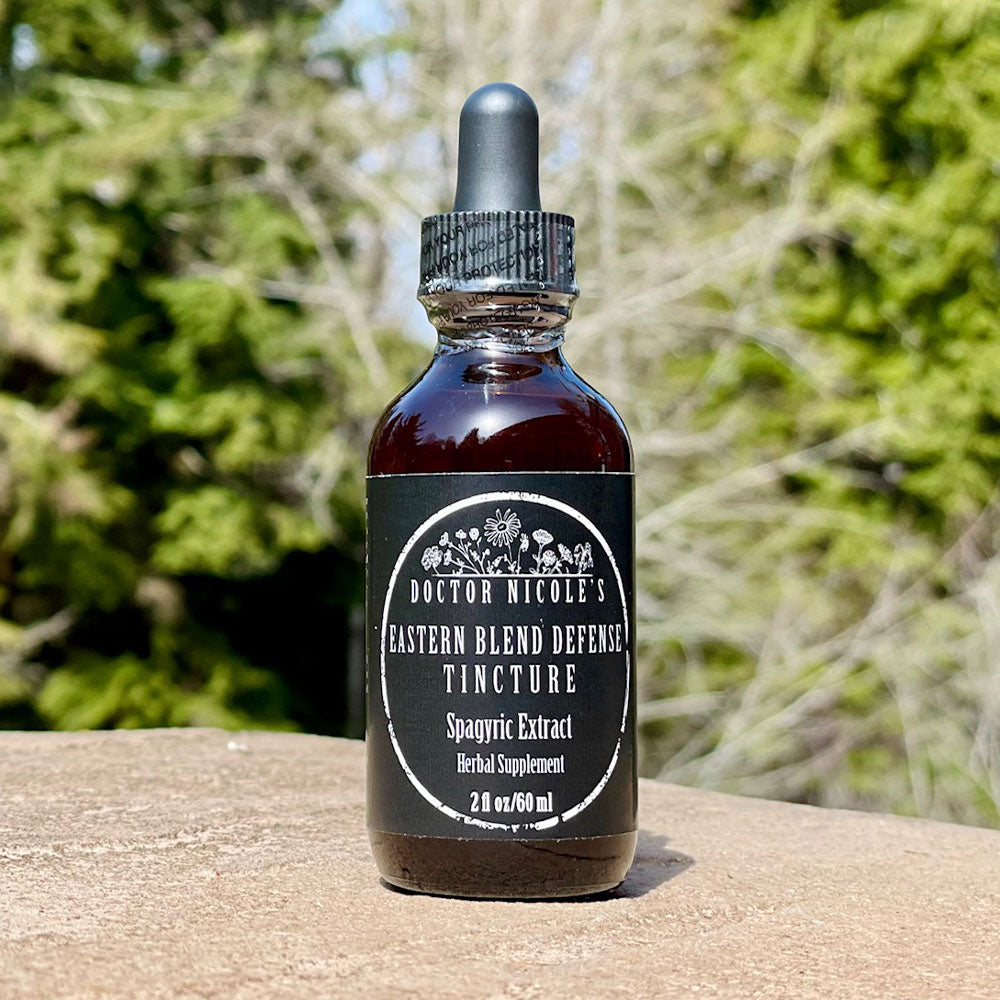“Every time you get infected [with the SARS virus], it does harm to the body in some way,” – Avindra Nath, neurologist at the National Institutes of Health.1
Navigating SARS and Multiple Infections
We are now four years and counting since the Severe Acute Respiratory Syndrome (SARS) virus entered the world stage with the pandemic, and while there is plenty of data available about the virus, it often affects people in unexpected ways. One example is long-haul syndrome. Another is how multiple infections can cause acute and future consequences — including damage to the immune system, scaring off the organs, and the rise of mental health conditions. While the long-term impacts remain to be seen, researchers have found there are several health conditions that arise when someone has become infected more than once, including neuroinflammation and significant cognitive impairment.
Here we will explore the research, implications, and how you can protect your family from viral infections using natural methods. Plus, we will touch upon the best diet to minimize symptoms, lower inflammation, and protect brain health.

Inflammation, Cognitive Impairment, & Long-Term Effects
The findings of several studies on repeat SARS infections are sobering. A study published in Nature Medicine analyzed 5.3 million health records from the U.S. Department of Veterans Affairs of individuals who did not test positive for the virus. The team then compared this data to 443,000 medical records of those who had been infected with the virus. What they found was startling: Individuals with multiple SARS infections were three times more likely to be hospitalized and twice as likely to die.4
It’s important to note the virus impacts multiple organ systems, not just the lungs. This includes the nervous, cardiovascular, pancreatic gastrointestinal, liver, endocrine, skin, renal, eye, and hematological systems.2 Having more than one SARS infection is also associated with an increased risk of mental health, musculoskeletal, and neurological disorders.4
What’s more, researchers over the past several years have begun to notice a disturbing trend in those who have contracted the virus: brain inflammation, which is often tied to long-haul syndrome. Unfortunately, the effects are not short-lived once the person is over the infection. One 2023 study discovered cognitive impairment caused by neuroinflammation was present up to four months after the initial illness had cleared, even in the case of mild infections.5
A follow-up study in March of 2024 found 26% of individuals who experience long-lasting cognitive effects from a SARS infection suffer from symptoms longer than previously thought — for up to six months. Elevated cytokine levels, which are known to cross the blood-brain barrier and can trigger neuroinflammation, are believed to be the root cause.6
Children can also be impacted. At the Society for Neuroscience’s annual meeting in 2022 a study was presented that established 14 children between the ages of 10-13 had changes in their sensorimotor areas of the brain for up to 15 months after the viral illness had resolved, compared to children who hadn’t been infected.7
While there are certain precautions we can take to avoid picking up the virus, it’s near impossible to avoid it completely and many of us have already had the illness multiple times. So where do we go from here?
While there are no hard and fast solutions, we can take steps to minimize viral load if we are exposed by priming our immune system and using antiviral remedies. We can also cool inflammation so it doesn’t wreak havoc on our neurological system.
The best way to do this without causing additional harm? You guessed it: medicinal herbal extracts. And my favorite all-in-one formulation for defending against viral illness and the subsequent neuroinflammation is our Eastern Blend. Paired with an anti-inflammatory Green Mediterranean Diet and you have an effective shield against contagious illness and inflammation, while also protecting brain health.
Natural Defense Against Contagious Illness, Simplified
When I set out to develop our convenient yet powerful Eastern Blend formulation, I focused on the most potent antiviral and antibacterial botanicals available — Chinese skullcap, Japanese honeysuckle, Japanese knotweed, and cordyceps medicinal mushroom. These research-backed herbs address a wide range of health concerns, including: viral and bacterial infections, respiratory illness, Lyme disease, cancer, anxiety, insomnia, poor immunity, and more. Working synergistically, these herbal medicines offer powerful anti-inflammatory action and boost/modulate the immune system. See below for the health-promoting highlights of each medicinal herb:
CHINESE SKULLCAP
- Antiviral – The baicalin and wogonin content in Chinese skullcap (Scutellaria baicalensis) has been shown to exhibit strong antiviral activity for severe respiratory illness, the common cold, and influenza.
- Anti-inflammatory
- Demonstrates great potential for acute lung injury induced by influenza
- Soothes anxiety, insomnia, and sleep disorders
- Numerous studies have established that Chinese skullcap encourages apoptosis (programmed cell death) of skin, colon, prostate, and bladder cancers.8,9
- Research has shown skullcap also prevents the growth and spread of ovarian, breast, liver, pancreas, bone, and colon cancers.10,11
- Skullcap protects against oxidative stress and has both neuroprotective and cognitive enhancement effects due to its baicalin content.12
JAPANESE HONEYSUCKLE
- Antiviral- Demonstrates strong antiviral activity against severe respiratory illness.13
- Antibacterial
- Anti-inflammatory
- Helps heal upper respiratory tract infections
- Modulates the immune system and significantly increases killer (NK) cells.14
JAPANESE KNOTWEED
- Antiviral – Japanese knotweed contains high concentrations of trans-resveratrol, the active form of the compound most useful to our body. It has strong antioxidant activity and inhibits viral replication. Studies have shown that resveratrol holds promise as a potent antiviral for severe respiratory infections.15
- Antibacterial and antifungal
- Reduces cancer risk
- Improves cognitive function
- Reduces neuroinflammation and neurodegenerative diseases such as Alzheimer’s and dementia.16
CORDYCEPS MEDICINAL MUSHROOM
- Antiviral – Cordycepin from C. militaris is thought to inhibit viral entry and viral replication into the host body’s cells.
- Combats fatigue
- Fights chronic inflammation
- Neuroprotective
- Antimicrobial
- Improves brain function
- Cordycepin also helps to prevent the replication of severe respiratory viruses within the cell.17
- Research suggests cordyceps inhibits the growth of cancer cells, including those of the lung, colon, and liver.18,19
MY GO-TO FOR PREVENTING & TREATING YOU-KNOW-WHAT
“Best anti-viral I have found for today’s times. My entire family has been using this. Those of us who use it preventatively haven’t gotten sick (!) and those who got sick got well SOON. We all pair it with Nicole’s Bronchial Blend. I also take her Mushroom fortress daily – for health, autoimmune issues and as another anti-viral. This is a hidden gem and we even got this for all of our employees to keep them healthy. Thank you!” -Tracy
If you are seeking powerful support against contagious illness and inflammation, while enhancing the immune system, there is no better option than our highly-effective Eastern Blend. Visit the apothecary today and experience the benefits for yourself!
Nicole Apelian
Nicole’s Apothecary Products in this Post
References
- “How Risky Are Repeat COVID Infections? What We Know So Far” Meghan Bartels, Scientific American, February 13, 2024. https://www.scientificamerican.com/article/how-risky-are-repeat-covid-infections-what-we-know-so-far/
- Gavriatopoulou, M., Korompoki, E., Fotiou, D. et al. Organ-specific manifestations of COVID-19 infection. Clin Exp Med 20, 493–506 (2020). https://doi.org/10.1007/s10238-020-00648-x
- “Multiple COVID infections can lead to chronic health issues. Here’s what to know.” Sanjay Mishra, National Geographic Science, September 13, 2023. https://www.nationalgeographic.com/premium/article/covid-reinfections-chronic-booster-vaccine?rnd=1713372805993&loggedin=true
- Bowe, B., Xie, Y. & Al-Aly, Z. Acute and postacute sequelae associated with SARS-CoV-2 reinfection. Nat Med 28, 2398–2405 (2022). https://doi.org/10.1038/s41591-022-02051-3
- de Paula, J. J., Paiva, R. E. R. P., Souza-Silva, N. G., Rosa, D. V., Duran, F. L. S., Coimbra, R. S., Costa, D. S., Dutenhefner, P. R., Oliveira, H. S. D., Camargos, S. T., Vasconcelos, H. M. M., de Oliveira Carvalho, N., da Silva, J. B., Silveira, M. B., Malamut, C., Oliveira, D. M., Molinari, L. C., de Oliveira, D. B., Januário, J. N., Silva, L. C., … Romano-Silva, M. A. (2023). Selective visuoconstructional impairment following mild COVID-19 with inflammatory and neuroimaging correlation findings. Molecular psychiatry, 28(2), 553–563. https://doi.org/10.1038/s41380-022-01632-5
- Souza-Silva, N. G., Rosa, D. V., de Paula, J. J., Coimbra, R. S., Miranda, D. M., & Romano-Silva, M. A. (2024). Follow-up of cognitive impairment and inflammatory profile in individuals with mild COVID-19. Journal of neuroimmunology, 389, 578327. https://doi.org/10.1016/j.jneuroim.2024.578327
- Neuroscience 2022. Society for Neuroscience. https://www.sfn.org/meetings/neuroscience-2022/sessions-and-events/scientific-program
- Ikemoto, S., Sugimura, K., Yoshida, N., Yasumoto, R., Wada, S., Yamamoto, K., & Kishimoto, T. (2000). Antitumor effects of Scutellariae radix and its components baicalein, baicalin, and wogonin on bladder cancer cell lines. Urology, 55(6), 951–955. https://doi.org/10.1016/s0090-4295(00)00467-2
- Zhang, D. Y., Wu, J., Ye, F., Xue, L., Jiang, S., Yi, J., Zhang, W., Wei, H., Sung, M., Wang, W., & Li, X. (2003). Inhibition of cancer cell proliferation and prostaglandin E2 synthesis by Scutellaria baicalensis. Cancer research, 63(14), 4037–4043.
- Pan, Q., Xue, M., Xiao, S. S., Wan, Y. J., & Xu, D. B. (2016). A Combination Therapy with Baicalein and Taxol Promotes Mitochondria-Mediated Cell Apoptosis: Involving in Akt/β-Catenin Signaling Pathway. DNA and cell biology, 35(11), 646–656. https://doi.org/10.1089/dna.2016.3312
- Ma, X., Yan, W., Dai, Z., Gao, X., Ma, Y., Xu, Q., Jiang, J., & Zhang, S. (2016). Baicalein suppresses metastasis of breast cancer cells by inhibiting EMT via downregulation of SATB1 and Wnt/β-catenin pathway. Drug design, development and therapy, 10, 1419–1441. https://doi.org/10.2147/DDDT.S102541
- Sowndhararajan, K., Deepa, P., Kim, M., Park, S. J., & Kim, S. (2018). Neuroprotective and Cognitive Enhancement Potentials of Baicalin: A Review. Brain sciences, 8(6), 104. https://doi.org/10.3390/brainsci8060104
- https://www.healthcmi.com/Acupuncture-Continuing-Education-News/2039-covid-19-coronavirus-herbs-found-effective
- Zhou, X., Dong, Q., Kan, X., Peng, L., Xu, X., Fang, Y., & Yang, J. (2018). Immunomodulatory activity of a novel polysaccharide from Lonicera japonica in immunosuppressed mice induced by cyclophosphamide. PloS one, 13(10), e0204152. https://doi.org/10.1371/journal.pone.0204152
- Polygonum cuspidatum and Its Active Components Inhibit Replication of the Influenza Virus through Toll-Like Receptor 9-Induced Interferon Beta Expression. 10.1371/journal.pone.0117602
- Jardim, F. R., de Rossi, F. T., Nascimento, M. X., da Silva Barros, R. G., Borges, P. A., Prescilio, I. C., & de Oliveira, M. R. (2018). Resveratrol and Brain Mitochondria: a Review. Molecular neurobiology, 55(3), 2085–2101. https://doi.org/10.1007/s12035-017-0448-z
- https://go.kompas.com/read/2020/06/13/133853974/get-to-know-more-about-cordyceps-militaris-for-covid-19-treatment?page=all
- Lee, H. H., Lee, S., Lee, K., Shin, Y. S., Kang, H., & Cho, H. (2015). Anti-cancer effect of Cordyceps militaris in human colorectal carcinoma RKO cells via cell cycle arrest and mitochondrial apoptosis. Daru : journal of Faculty of Pharmacy, Tehran University of Medical Sciences, 23(1), 35. https://doi.org/10.1186/s40199-015-0117-6
- Lee, S., Lee, H. H., Kim, J., Jung, J., Moon, A., Jeong, C. S., Kang, H., & Cho, H. (2015). Anti-tumor effect of Cordyceps militaris in HCV-infected human hepatocarcinoma 7.5 cells. Journal of microbiology (Seoul, Korea), 53(7), 468–474. https://doi.org/10.1007/s12275-015-5198-x






